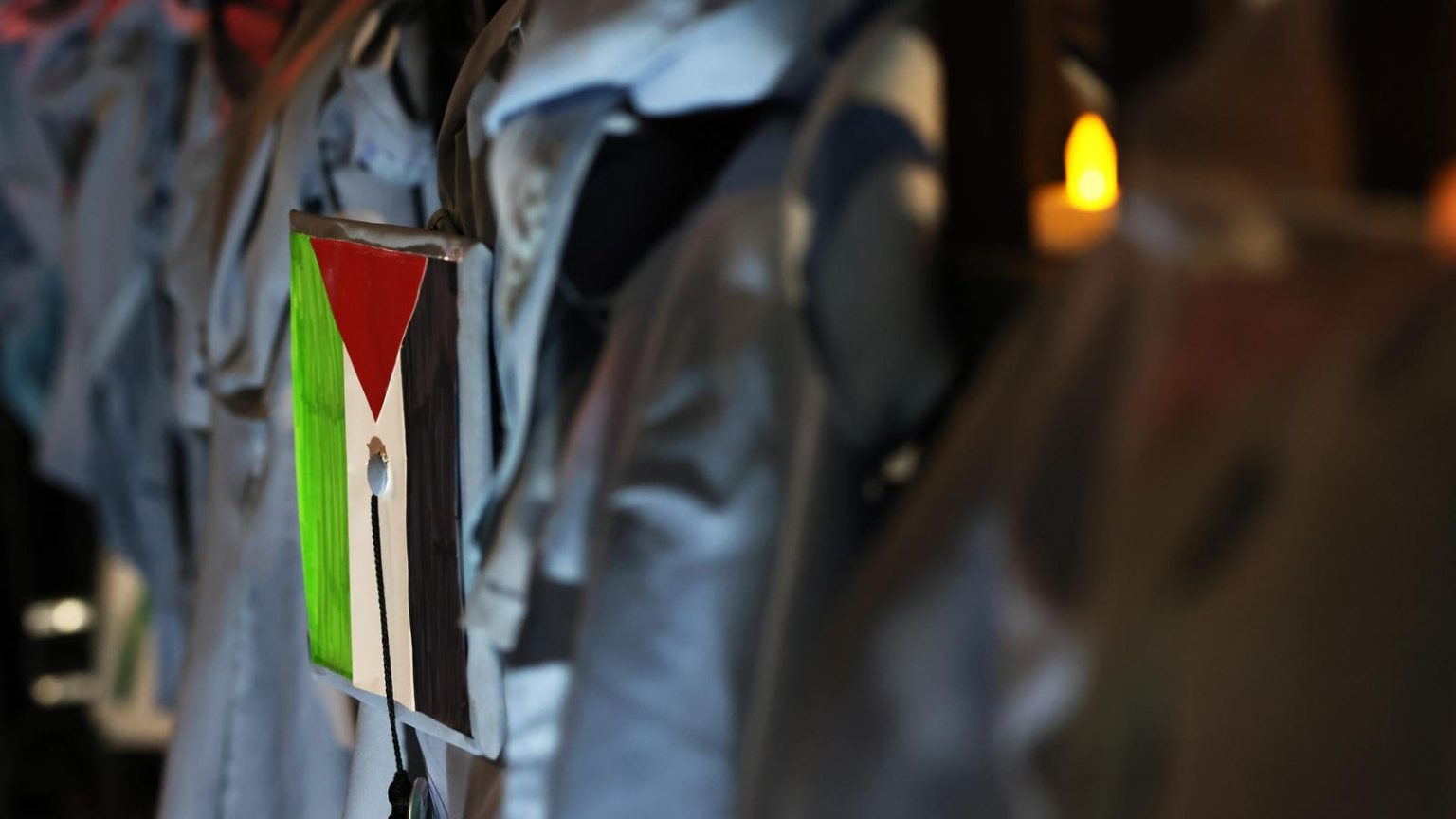Columbia University has made the decision to cancel its campus-wide graduation ceremony scheduled for next week, in response to protests related to the war in Gaza that have caused unrest on campus. More than 100 people were arrested as police cleared encampments at the request of the university, leading to the cancellation of the traditional ceremony. The school will instead focus on “school-level ceremonies, where students are honored individually alongside their peers.”
The decision to cancel the campus-wide ceremony, originally scheduled for May 15, comes after Columbia had already canceled its in-person classes and started suspending students who refused to vacate an encampment on campus. The school has not announced specific details about a potential replacement event, stating only that there could be another “festive event.” The ongoing protests on campus have created a difficult situation for the community, according to the school’s announcement.
Despite the cancellation of the main graduation ceremony, Columbia has not publicly announced updated plans for final exams, which were originally scheduled to be remote. Student editors at the Columbia Law Review have requested that final exams be canceled altogether and that all students be given passing grades, citing the emotional toll of witnessing police in riot gear removing protestors from Hamilton Hall.
House Speaker Mike Johnson has criticized Columbia President Minouche Shafik’s handling of the protests, calling for her removal. Johnson alleges that the school has allowed outside agitators and terrorist-sympathizing students and faculty to influence campus rules and has engaged in anti-Jewish aggression. He specifically condemned the decision to cancel the main graduation ceremony in light of the ongoing protests.
The protests at Columbia and other schools have been demanding that universities agree not to punish protestors, divest from Israeli-linked firms, and withdraw support from companies allegedly backing the war in Gaza. Some students have targeted large companies with business ties to Israel, such as Google and BlackRock. Columbia has previously divested from fossil fuel interests, assets related to prisons, and tobacco sales.
The reaction to the protests has extended beyond Columbia, with donors threatening to cut off financial support to universities tolerating pro-Palestinian protests featuring alleged antisemitic rhetoric. Notable donors such as Leon Cooperman, Henry Swieca, Marc Rowan, Bill Ackman, Barry Sternlicht, and Ken Griffin have either ended relationships with their alma maters or criticized their handling of the protests. The situation at Columbia and other universities continues to evolve as tensions surrounding the war in Gaza persist.


